The 2024 Indian Society of Developmental Biologists meeting (InSDB24) was hosted at the vibrant Bangalore Life Sciences Cluster, with over 300 participants from India and overseas. The talks and sessions reflected the interdisciplinary nature of modern developmental biology with sessions on early development, developmental cell biology, mechanisms of morphogenesis, stem cells and repair, disease and aging, and quantitative approaches to development. The speakers at each of these sessions – both invited and selected – spanned stalwarts and rising stars of their fields along with short talks and flash talks given by students and postdocs.
The four-day meeting was set in motion by Prof. Maneesha Inamdar, President of InSDB where she spoke about the society, its inception in 1977, and its evolution since. This set the stage for the program that delved into diverse themes like early development, signaling, organelles in development, and the development of neural systems. We wrapped up the first day with a special, pre-dinner perspective talk by Prof. S.C. Lakhotia on the history of developmental biology research in India. Both Maneesha’s and Subhash’s talks were important reminders of how developmental biology has come to be in India, and how rich its history has been in the many universities across the country. Importantly, they placed into context the science currently being pursued in the country today.
The second day started with a session on morphogenesis where Dr. Ondine Cleaver spoke about her work on organoid development. The day ended with a pre-dinner session led by Dr. Surendra Ghaskadbhi about the importance of taking the concepts and inquiry of developmental processes from research labs to students and enthusiasts of all ages across the country. He highlighted this with examples of how he approaches it through his work on Hydra, a captivating yet simple model for such outreach initiatives.
The undisputed highlight of the day was the talk given by Prof. Masatoshi Takeichi, the discoverer of cadherin. He took us through his research and the wonderful backstories of frustrations and epiphanies (which included mundanities such as the composition of buffers!) over the years that have led to our understanding of this key molecule that orchestrates so many developmental processes. The audience couldn’t get enough, and when the bell indicated his time was up, there were, as if in a concert, calls for an encore! Takaechi San looked puzzled but obliged.
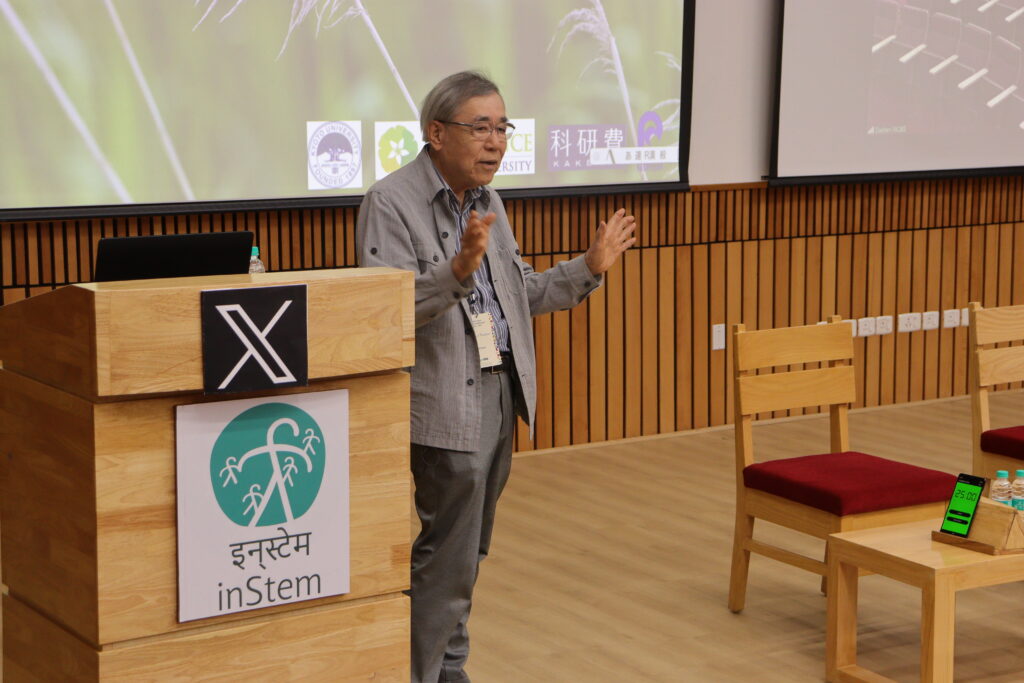
Stem cell research and neurodevelopment took center stage on day 3. Dr. Deepak Srivasatava’s talk on cellular reprogramming approaches to heart diseases and the developmental processes that go awry in congenital heart defects was the day’s highlight. The last day of InSDB24 started with a session on models of organogenesis and continued with sessions on behavior and evolution with talks on how ants smell (by Claude Desplan) and how birds get their plumage (by Marie Manceau). The talks were also balanced in terms of career stage and gender representation (Fig. 1).
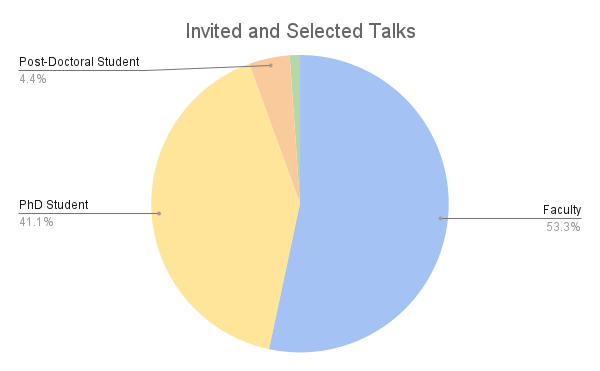
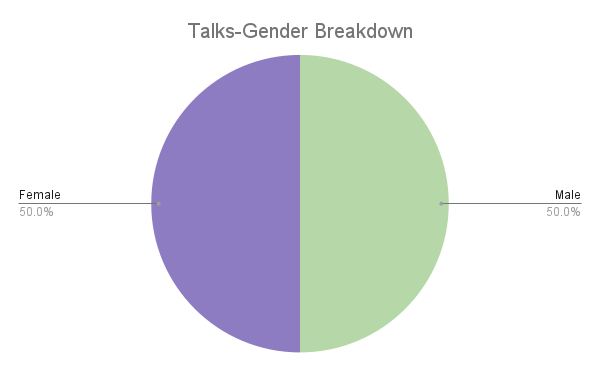
Fig. 1: Talks according to career stage and gender
Another highlight of the meeting was a discussion session that brought together clinicians and researchers on the topic of developmental origins of health and disease ( DOHaD). This session saw much enthusiasm from both sides. Moving forward, InSDB will actively foster DOHaD and similar initiatives. If this is an area that interests you, please get and stay in touch with us!
Other sessions were also both fun and stimulating. Each afternoon, after lunch, we had poster sessions over coffee, popcorn, softies, and sodas. With over 150 posters, presented by students, post-docs, and faculty, this was the main focus of the meeting. The submitted abstracts reflected excellent gender representation as well (Fig. 2). The poster sessions showcased the vibrancy of the Indian developmental biology community.
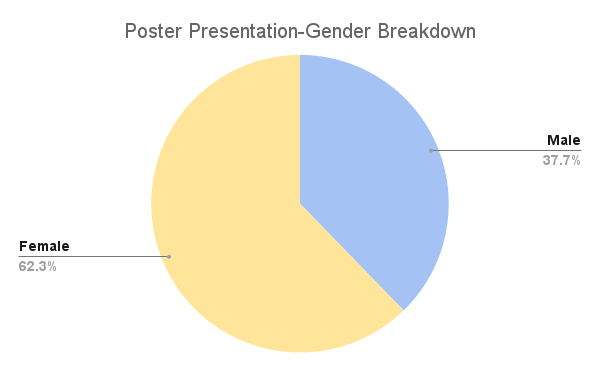
Fig. 2: Posters according to gender
Beyond the Usual
We did not confine ourselves to scientific talks and discussions alone. The first day of InSDB24 featured Dance Development!, a dance competition where participants conveyed a scientific concept through their dance moves. The event was perhaps a first of its kind, and the enthusiasm of both participants and attendees confirmed its status as a crowd favorite. A quiz night, hosted by Urmila Lakshmanan, was the dinner time activity of the second day. The teams were assigned randomly, and there was much passionate heated debate over the questions and answers with questions thrown in for the audience too.
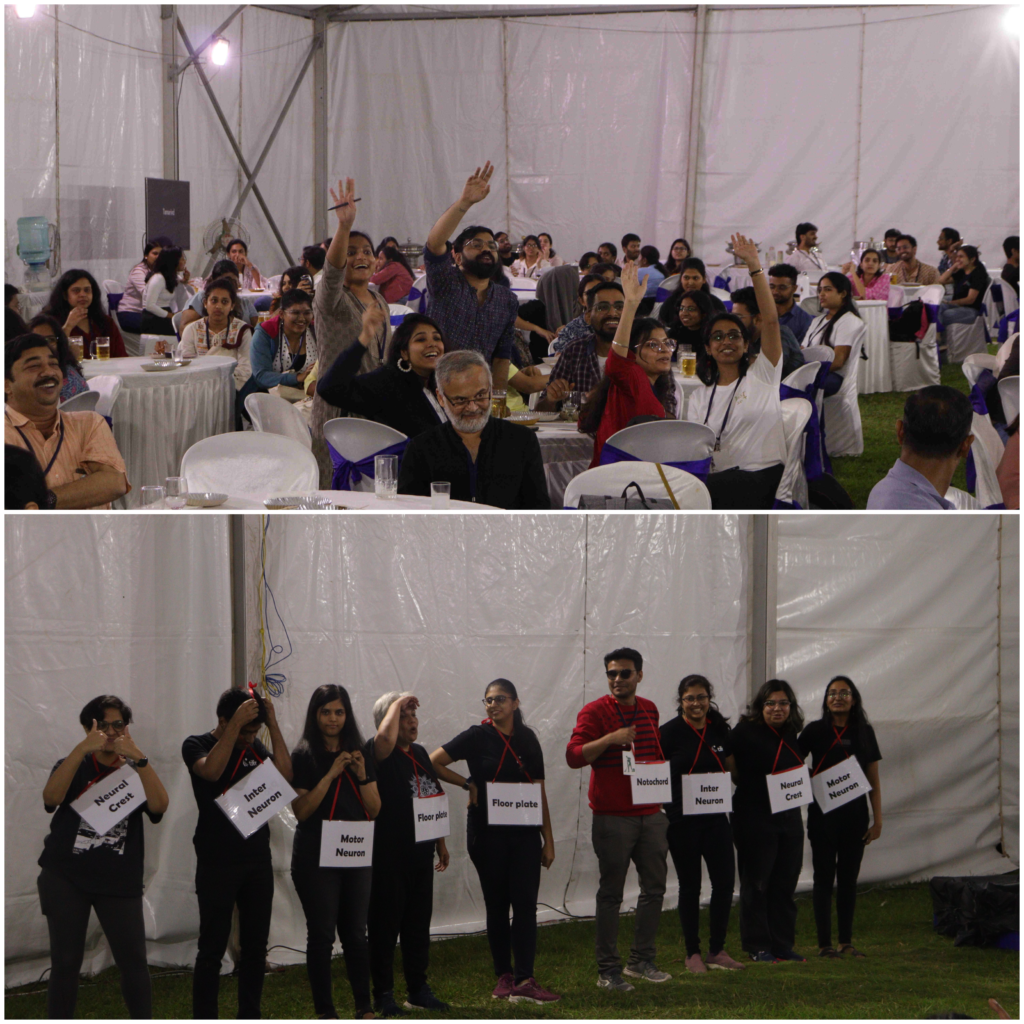
Board Meeting
The InSDB executive body meeting was held on the second day of the meeting. The board handed over duties to the newly elected board members and thanked the outgoing members. The full agenda and minutes of the meeting can be found here. The general body meeting, which included all members of the society, took place on the last day and ratified the proposed changes.
The closing ceremony included prize distribution to all poster winners and other competition winners. The next meeting was also announced. As per tradition, the newly appointed secretary, Dr. Ramkumar Sambasivan, will be hosting it at IISER-Tirupati in 2026. After four days of discussions and presentations, the event came to a close with a dinner that let everyone loose and on their toes!
The Crew!
Being the first InSDB meeting after a long hiatus (courtesy of the pandemic), the expectations set for this meeting were quite high. These were largely met due to the immense effort put in by this year’s organizers: Maneesha Inamdar (inStem), Raj Ladher (NCBS), Sonia Sen (TIGS), K VijayRaghavan (NCBS) and Arjun Guha (inStem). Along with them, PhDs and postdocs from the BLiSC community also worked hard and ensured the event was smooth sailing. We also extend our gratitude to Kalika Prasad (IISER-Pune), Chetana Sachidanandan (CSIR-IGIB), Rohan Khadilkar (ACTREC), Vinay Bulusu (IISER-Berhampur), and Mayuri Rege (HBCSE) for their assistance in organizing the event.
There were hiccups (our apologies), but we hope that everyone went away feeling rejuvenated and part of a larger community of developmental biologists in the country and across the globe. InSDB will strive towards keeping up this sense of community through the activities planned in the coming months. Do stay in touch with us!
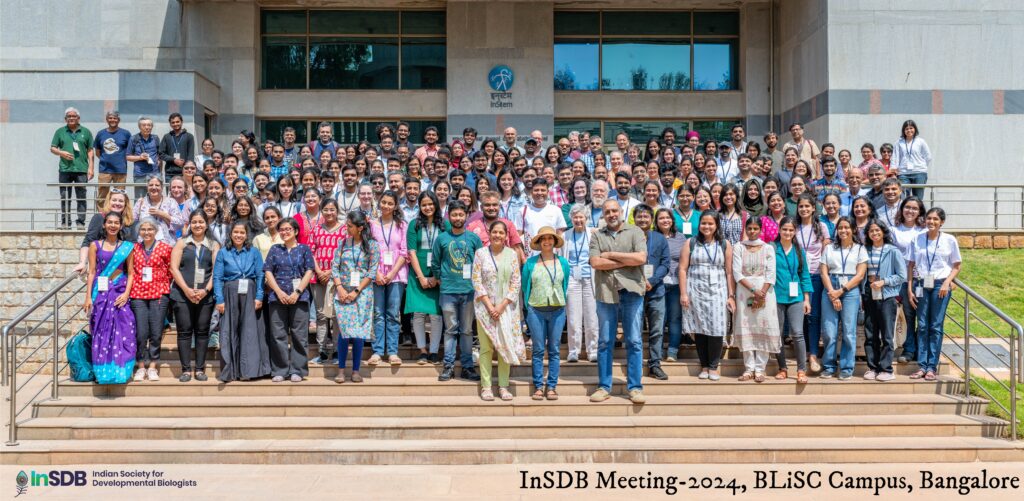
InSDB was founded in 1977 to promote developmental biology in India and to connect biologists across the country. Read more about our mission here.





